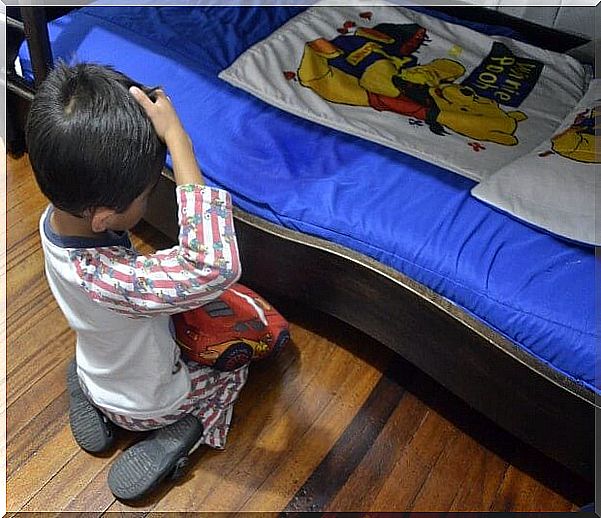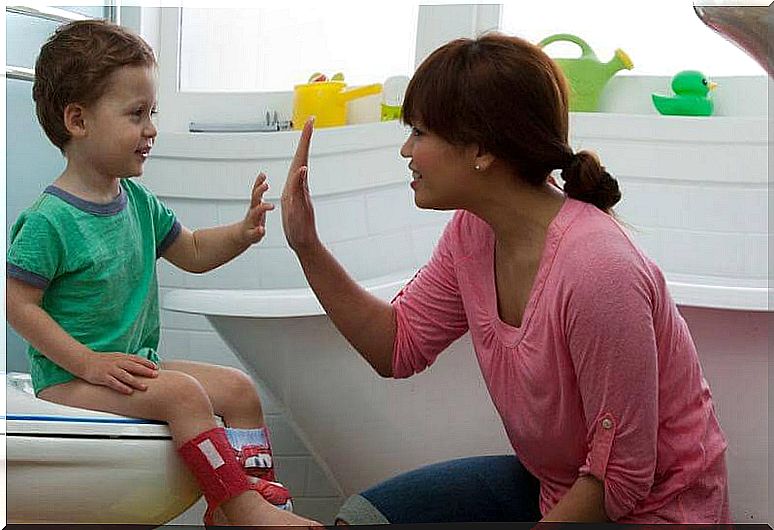Your Child Wets The Bed. When Is It Time To See A Pediatrician?

Your child wets the bed as part of their evolutionary process. It is normal for children to release urine at night. However, in certain cases pediatricians recommend looking at this event from a clinical point of view.
The child does not always wet the bed because it is a normal behavior, so it is convenient that we observe the context in which this occurs. It is possible that children suffer these involuntary losses during the day and in social settings. Even though this also happens at school or in the park, most of the time it happens at night.
It is very important to treat the problem as normal. Experts say it is not advisable to exaggerate the situation. It is not always necessary to see a doctor. Although families can make this a taboo, it is advisable to help the child without overdoing it.
In this regard, pediatricians suggest that we remain calm, as at least up to 3 years of age this is normal. This can also happen due to stressful situations. Below we will tell you when you need to see a pediatrician if your child wets the bed.
My son still wets the bed, should I worry?

While the child is going through this situation, it is advisable to help him through this stage with understanding and love. If what concerns us is the wet bed, we can put on absorbent protectors, either in the form of panties or underwear. Next, it is necessary to understand that this is a normal step, which we should not turn into a serious problem.
Scolding or reproving her is not an option if we want her to get over it without trauma. According to experts, children will continue to wet the bed until a little after three years. Therefore, we must be prepared to support them until they are physically and psychologically prepared.
However, when your child is over 3 years of age and is still wetting the bed, it may be time to see a specialist. This is not to say that at exactly three years of age the child is forced to stop wetting the bed, but it is time to start watching him carefully.
When the child wets the bed, even when it is assumed that he/she has already overcome the maturation process, it may be necessary to consult a pediatrician. However, it is generally believed that this does not represent something very serious, just a slight delay in its maturation. It is convenient to pay attention to the following cases:
- If the child starts wetting the bed from the age of three
- If other aspects of your behavior have also changed
- If there is any suspicion of infection or inflammation of the urinary tract
- If you have doubts about the onset of incontinence or how long it lasts.
Why does the child still wet the bed after the age of three?

When a child wets the bed after the age of three, children begin to talk about enuresis. Although it appears to be a serious illness, it is actually defined as the appearance of incontinence due to organic immaturity.
In most cases, this situation occurs because children are going through emotional situations that are difficult to manage. For example, they are suffering from anxiety or frustration. Enuresis can usually appear due to bullying at school, the loss of a family member, the separation of parents or the arrival of a little brother.
It is possible that in the face of any new emotion or change in their life, the child will start wetting the bed after having overcome this phase. Likewise, at times her inability to manage her emotions prevents her from having the maturity to stop wetting the bed.
This situation is usually temporary. The solution involves protecting clothes and bedding, but it is also related to emotional support. It is important that the child feels protected and cared for, and that they can overcome their insecurities and balance their feelings. Do not hesitate to consult a pediatrician so that any major problem can be ruled out, for example, whether or not the child needs psychological support.









